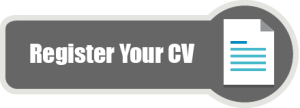How to Write Effective Emails at Work
Email has long been a core tool for business communications, but it can also cause tension, confusion, and other negative consequences for working professionals. Here are some things you can do to ensure that your emails are clear and effective.
Do Not Overcommunicate
One of the biggest sources of stress at work is the tons of emails that you receive. So, before you begin writing an email, ask yourself: "Is this really necessary?" Also, email is not as secure as you might want it to be, so avoid sharing sensitive or personal information in an email, and don't write about anything that you, or the subject of your email. Whenever possible, deliver bad news in person. This helps you to communicate with empathy, compassion, and understanding, and to make amends if your message has been taken the wrong way.
Pay Attention to Subject Lines
The subject line of your email message should be able to do two things: it should be able to grab your attention and summarize the article, so that they can decide whether to read it or not. A blank subject line is more likely to be overlooked or rejected as "spam," so always use a few well-chosen words to tell the recipient what the email is about. A well-written subject line like the one below delivers the most important information, without the recipient even having to open the email. This serves as a prompt that reminds recipients about your meeting every time they glance at their inbox.
Keep Messages Clear and Brief
Emails need to be clear and concise. Keep your sentences short and to the point. The body of the email should be direct and informative, and it should contain all pertinent information. If you need to communicate with someone about a number of different topics, consider writing a separate email for each one. This makes your message clearer, and it allows your correspondent to reply to one topic at a time. However, try to find the balance and do not bombard them with emails.
Mind Your Tone
When we meet people face-to-face, we use the other person's body language , vocal tone, and facial expressions to assess how they feel. Email robs us of this information, and this means that we can't tell when people have misunderstood our messages. Your choice of words, sentence length, punctuation, and capitalization can easily be misinterpreted without visual and auditory cues.
Be Always Polite
The messages you send are a reflection of your own professionalism, values, and attention to detail, so a certain level of formality is needed. Avoid informal language, slang, jargon , and inappropriate abbreviations unless you know them well. Close your message with "Regards," "Yours sincerely," or "All the best," depending on the situation.



